Napol Rachatasumrit
The Semantic Reader Project: Augmenting Scholarly Documents through AI-Powered Interactive Reading Interfaces
Mar 25, 2023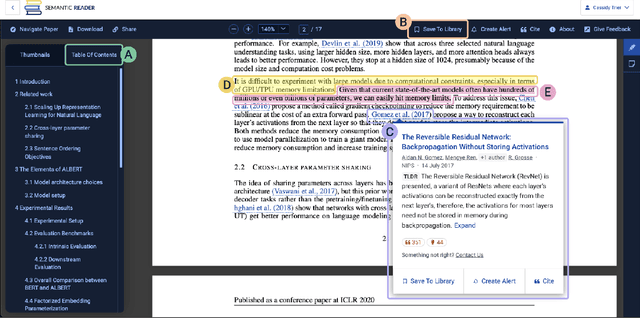
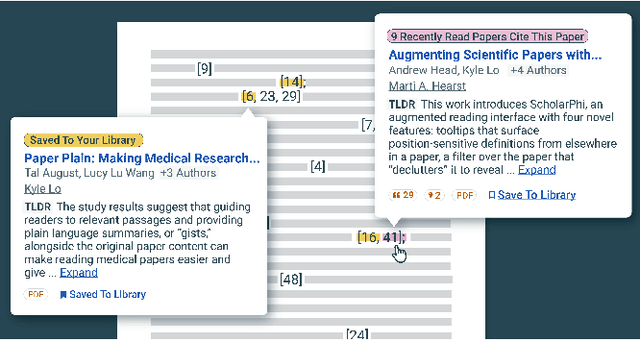
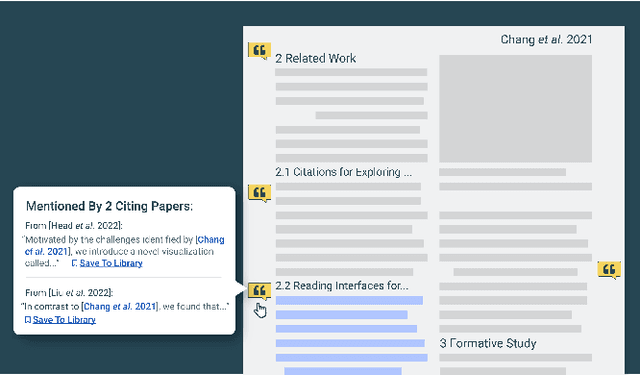
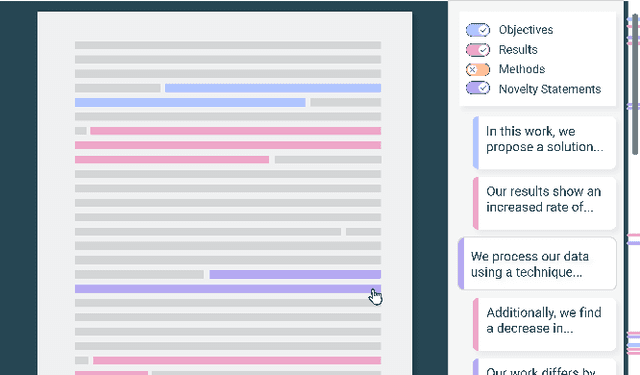
Abstract:Scholarly publications are key to the transfer of knowledge from scholars to others. However, research papers are information-dense, and as the volume of the scientific literature grows, the need for new technology to support the reading process grows. In contrast to the process of finding papers, which has been transformed by Internet technology, the experience of reading research papers has changed little in decades. The PDF format for sharing research papers is widely used due to its portability, but it has significant downsides including: static content, poor accessibility for low-vision readers, and difficulty reading on mobile devices. This paper explores the question "Can recent advances in AI and HCI power intelligent, interactive, and accessible reading interfaces -- even for legacy PDFs?" We describe the Semantic Reader Project, a collaborative effort across multiple institutions to explore automatic creation of dynamic reading interfaces for research papers. Through this project, we've developed ten research prototype interfaces and conducted usability studies with more than 300 participants and real-world users showing improved reading experiences for scholars. We've also released a production reading interface for research papers that will incorporate the best features as they mature. We structure this paper around challenges scholars and the public face when reading research papers -- Discovery, Efficiency, Comprehension, Synthesis, and Accessibility -- and present an overview of our progress and remaining open challenges.
Fuse: In-Situ Sensemaking Support in the Browser
Aug 31, 2022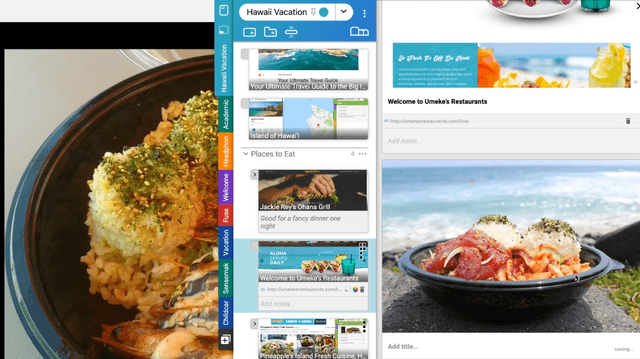

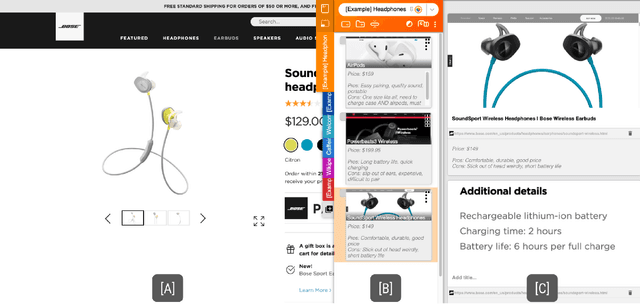
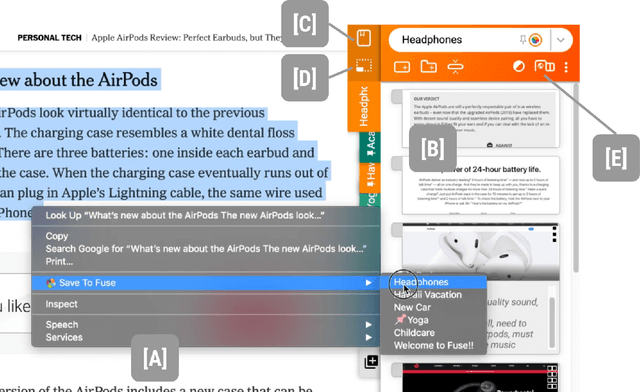
Abstract:People spend a significant amount of time trying to make sense of the internet, collecting content from a variety of sources and organizing it to make decisions and achieve their goals. While humans are able to fluidly iterate on collecting and organizing information in their minds, existing tools and approaches introduce significant friction into the process. We introduce Fuse, a browser extension that externalizes users' working memory by combining low-cost collection with lightweight organization of content in a compact card-based sidebar that is always available. Fuse helps users simultaneously extract key web content and structure it in a lightweight and visual way. We discuss how these affordances help users externalize more of their mental model into the system (e.g., saving, annotating, and structuring items) and support fast reviewing and resumption of task contexts. Our 22-month public deployment and follow-up interviews provide longitudinal insights into the structuring behaviors of real-world users conducting information foraging tasks.
 Add to Chrome
Add to Chrome Add to Firefox
Add to Firefox Add to Edge
Add to Edge